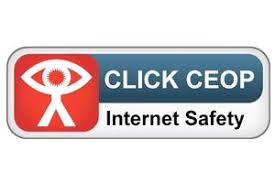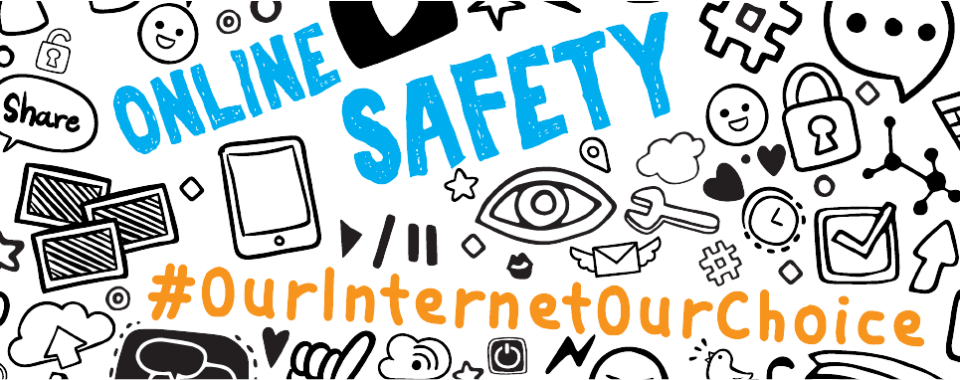E-Safety Information and Resources
Technology is hugely valuable for education, as well as a way to keep in touch with friends and family. However it’s important we all consider how we (school staff, parents and carers) can support children’s online safety/e-safety at all times.
It is also essential that we all work together to empower St Jérôme students by giving them the tools to deal with online threats and to make the internet a better place! Our goal at St Jérôme is to prepare students – step-by-step with well-informed support – for the internet as it actually is.
All of the information and resources on this page are taken from the experts at the organisations listed (with links) at the bottom of this page.
TOP 5 TIPS
Talk about being online: the good and the bad
The NSPCC says that this is the single-most important factor in keeping children safe online. It can be difficult to know how to start talking to your child about what they’re doing online or who they might be speaking to. But talking regularly, like you would about their day at school, will help your child feel relaxed and mean that when they do have any worries, they’re more likely to come and speak to you.
The NSPCC website contains good advice about approaching this topic with your child. It is also to help your child identify trusted adults who can help them if they are worried: This includes you and other adults at home, as well as adults from wider family, school or other support services who they are able to contact at this time. Encourage them to draw a picture or write a list of their trusted adults.
Use parental controls
Parental controls have been designed to help you manage your child’s online activities. There are various types, some of which are free but others which can be bought. There are also applications that can be used to restrict or monitor usage of gaming systems, such as Xbox and Playstation. Online activity can be monitored via your broadband provider to ensure that your child stays safe on the internet.
However, nothing is totally fool proof so this shouldn’t replace the support and guidance you give your child to help keep them safer. For more information and step by step instructions on setting up parental controls, visit Parental Controls & Privacy Settings Guides – Internet Matters.
Gocompare.com have compiled a guide to broadband parental controls and internet safety for children for most UK broadband providers which can be accessed here.
Talk about being kind online
Primary-age children may not have previously had much experience with video chatting apps such as zoom, FaceTime and Skype, but may well be using them now for education or to keep in touch with family and friends.
To make sure your child has a positive experience video chatting online, read this guide for parents and carers.
Keep active and encourage screen breaks
Fresh air and time away from screens helps develop perspective and to move past frustrations. Keep the devices your child uses in communal areas of the house such as the living room or kitchen, where an adult is able to supervise how much time is spent in front of a screen. Primary-age children should not access the internet in private spaces alone, such as in a bedroom or bathroom. Use 5-a-day.tv (you will need to be logged in to your child’s account to access this login information) to keep your child active every day.
Develop online resilience!
In order to make the internet a better place for children (and everyone else), it is important that children learn how to report and block inappropriate content. Social media apps and websites often have reporting tools. It is essential to empower children online because it is almost inevitable that children will encounter unpleasant experiences (much like life) at some point. Teaching children who to talk to, when to talk about and how to constructively overcome these issues is our goal.
Useful Organisations
There are many national organisations which provide useful information about internet safety for parents and carers:
- NSPCC – National Society for the Prevention of Cruelty to Children
The NSPCC has a section of its website dedicated to online safety.
- NCA-CEOP – National Crime Agency – Child Exploitation and Online Protection Command – a government agency which protects children
Child Exploitation and Online Protection Command – this is part of the National Crime Agency.  Reports on concerning or illegal online behaviour can be made by .
Reports on concerning or illegal online behaviour can be made by .
The CEOP logo can be found on many websites and can be used for advice or to report concerning sites or behaviours.
- Thinkuknow.co.uk – the educational programme of the CEOP
The thinkuknow.co.uk organisation has a parents website. There are a lot of fun, online safety activities to do with your family.
- Parent Zone – a social enterprise partnered with the UK government
ParentZone is aimed at empowering young people, parents and professionals to build the skillsets needed to analyse and deal with challenges they face online. They provide an online app which can help parents and children respond to these challenges.
- National Online Safety – a training organisation specialising in e-safety
National Online Safety is a training organisation used by many schools across the country. Their website has free resources on a wide range of topics across different age groups.
Let’s all be safe online together.

